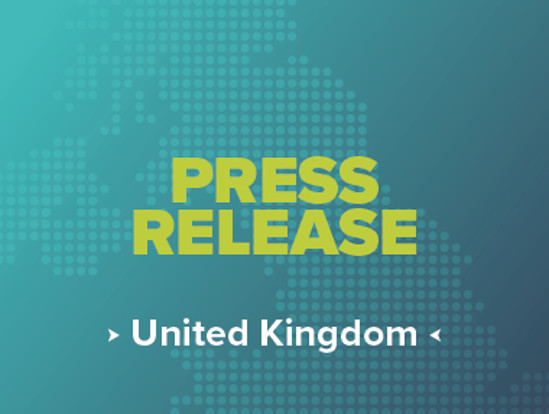Key findings:
- 25 per cent of small business owners are disabled or have a health condition.
- 23 per cent of business owners who are disabled or who have a health condition have experienced discrimination or negative treatment.
- 52 per cent have experienced a barrier due to their having a disability or health condition,such as not being able to commit to consistent hours or meet short deadlines (34%), when applying for financial support (15%), and lacking access to equipment (11%).
- 41 per cent of disabled business owners have used no business support, compared with 35 per cent of non-disabled business owners. They are more likely to use informal support, such as FSB networks (15%) and other networks (19%).
- 13 per cent of business owners who are disabled or who have a health condition have used Access to Work. 35 per cent have not heard of the scheme at all, and 25 per cent were not aware that it was available for the self-employed.
- 24 per cent of small business owners say they have a mental health condition.
- 34 per cent of small business owners say that their mental health has declined in general over the course of the COVID-19 pandemic.
Case Study
Julian John, Professional services, Wales
FSB Disability, health, and wellbeing Policy Chair
Julian John is the founder of award-winning consultancy Delsion. Having recovered from brain damage in 2005 which left him with limited mobility, Julian realised there were many barriers for disabled people returning to work. With his HR background, he established Delsion in 2015, which focuses on diversity and inclusion, and learning and development. He has since made Swansea the first Disability Confident city in the UK. He is listed as one of the most influential business leaders in the UK in the Shaw Trust Power 100 and was included in the People Management Diversity & Inclusion Power List 2020. Julian set up Delsion both because he was long-term unemployed and struggling to find employment, and because he had spotted a gap in the market which the business could fill to offer something new. In addition, self-employment offered him the flexibility he needed in work.
Our recommendations:
The Department for Business, Energy & Industrial Strategy (BEIS) should set a target to grow the number of disabled entrepreneurs by 100,000 by 2025, and over 250,000 by 2030. A disability entrepreneurship gap exists, and government should act to help close it. This report highlights the economic, social and health benefits of entrepreneurship by disabled people to the UK. This should sit alongside efforts to close the disability employment gap as a whole.
BEIS should produce condition-specific ‘Pathways to Entrepreneurship’ strategies, to address the differing barriers faced by those with different conditions. Not every disability or long-term health condition impacts entrepreneurship in the same way. The Government has sufficient resource to undertake complimentary condition-specific work as well. This should be similar in governance and scope to the sector strategies previously published by BEIS in the past, working with relevant stakeholders.
The Department for Work and Pensions (DWP) should replace the scrapped New Enterprise Allowance with a more ambitious scheme, and ensure Disability Employment Advisors are appropriately trained to enable self-employment. The NEA helped thousands of disabled people start a business before it was closed in December 2021. There is a strong case for replacing the scheme with a more substantial successor – providing both additional support and increased weekly payments. Both new and existing DEAs should be appropriately trained on self-employment and be encouraged to make schemes like an NEA replacement available to disabled jobseekers.
DWP should scrap the ‘one-chance-only’ rule that prevents disabled entrepreneurs using the Government’s Access to Work scheme. The qualification rules should be amended to allow those who have previously failed the business viability test to re-apply as soon as their business returns to viability, rather than the current five-year ban. This would support disabled entrepreneurs who might have experienced a period of ill health, thus failing the viability test, to gain support as soon as they are able to grow the business again. Government should also ensure that business plan requirements do not create a barrier to disabled entrepreneurs.
The British Business Bank should launch a Disability Angels CoFund, based on the Angel CoFund, and provide funds for additional start-up loans ear marked for disabled entrepreneurs. Government has taken significant action through the BBB to improve access to equity funding. There is a case for extending this action with the aim of enabling disabled entrepreneurs to access early-stage capital more easily. The BBB’s start-up loans have performed well in widening access to entrepreneurship, and providing additional funding for new start-up loans, specifically for disabled entrepreneurs, would provide a clear route for potential disabled entrepreneurs to start a business.
UK Government should require major banks to measure and publish the proportion of loans given to disabled entrepreneurs. This should mirror the Rose Review recommendation with regards to female entrepreneurship funding transparency. Disabled entrepreneurs are less likely than non-disabled entrepreneurs to use banks as a form of business support. Banks have undertaken a considerable amount of work to increase accessibility and provide protection for vulnerable customers and should be commended for doing so. Collecting and publishing data on the proportion of loans granted to disabled entrepreneurs would be a hugely important continuation of this work.
UK Government should address the critical gap in enterprise data through exploring the collection of disability data points in government data, such as through the Small Business Survey, and adding a voluntary tick box to the VAT Return form or the Annual Returns form submitted to Companies House. It would be beneficial to have data broken down by disability type, as disabled people are not an homogenous group, but this will need to be balanced with what information people are happy to disclose, and ensuring data are
usable with robust base sizes.
![<center>[Image text] 25% of small business owners are disabled or have a health condition</center>](https://www.fsb.org.uk/static/17414d59-57ff-4351-a57ecbe243de458f/271efc3f-8178-4ad4-92ac9e6c04795a56/image_gallery_88a7d5280ad36ac90440e3fe919afdd2/BWB-25.png)
![<center>[Image text] 34% of business owners report a decline in their mental health during the pandemic</center>](https://www.fsb.org.uk/static/fc11ae72-db43-4a63-99c2039a8008a7a7/image_gallery_88a7d5280ad36ac90440e3fe919afdd2/BWB-34.png)
![<center>[Image text] 51% of small employers have employed a disabled person or someone with a health condition in the last 3 years</center>](https://www.fsb.org.uk/static/ff2d78c4-7fea-45ce-8e29d4831ae3cd0e/e11c2fae-0fea-45af-bfe7e9f12852eda0/image_gallery_88a7d5280ad36ac90440e3fe919afdd2/BWB-51.png)
![<center>[Image text] 91% of small employers offer flexible working, rising to 97% of those who employ a disabled person or someone with a health condition</center>](https://www.fsb.org.uk/static/d1846ddf-5d6d-4ec3-bf71770ad5112a26/ba1f75e8-c4e5-499f-9346a0f17668d611/image_gallery_88a7d5280ad36ac90440e3fe919afdd2/BWB-91.png)
![<center>[Image text] 54% of small business employers believe the government should cover SSP costs or should implement a full rebate for small businesses</center>](https://www.fsb.org.uk/static/79e918f0-705a-46ab-8cb4e41947bb7f17/image_gallery_88a7d5280ad36ac90440e3fe919afdd2/BWB-54.png)
![<center>[Image text] The cost of sickness absence last year for small business employers was £5bn</center>](https://www.fsb.org.uk/static/cb0360f2-70e7-4b09-9124d0f275145885/image_gallery_88a7d5280ad36ac90440e3fe919afdd2/BWB-5bn.png)
![<center>[Image text] 23% of disabled people or those with a health condition have experienced discrimination or negative treatment</center>](https://www.fsb.org.uk/static/8c68f0f1-80b7-4798-aa87ee37ddedfab4/b9efa48e-8586-4c34-a9896a0e93faa498/image_gallery_88a7d5280ad36ac90440e3fe919afdd2/BWB-23.png)
![<center>[Image text] 52% have experienced a barrier due to their being disabled or having a health condition, such as being unable to commit to consistent hours, meet short deadlines, apply for financial support or get access to equipment</center>](https://www.fsb.org.uk/static/df68ef10-7be8-447e-bdc1c06f0c517cc6/d6046a02-9e79-4d84-94e9fbffd7a94b8e/image_gallery_88a7d5280ad36ac90440e3fe919afdd2/BWB-52.png)




